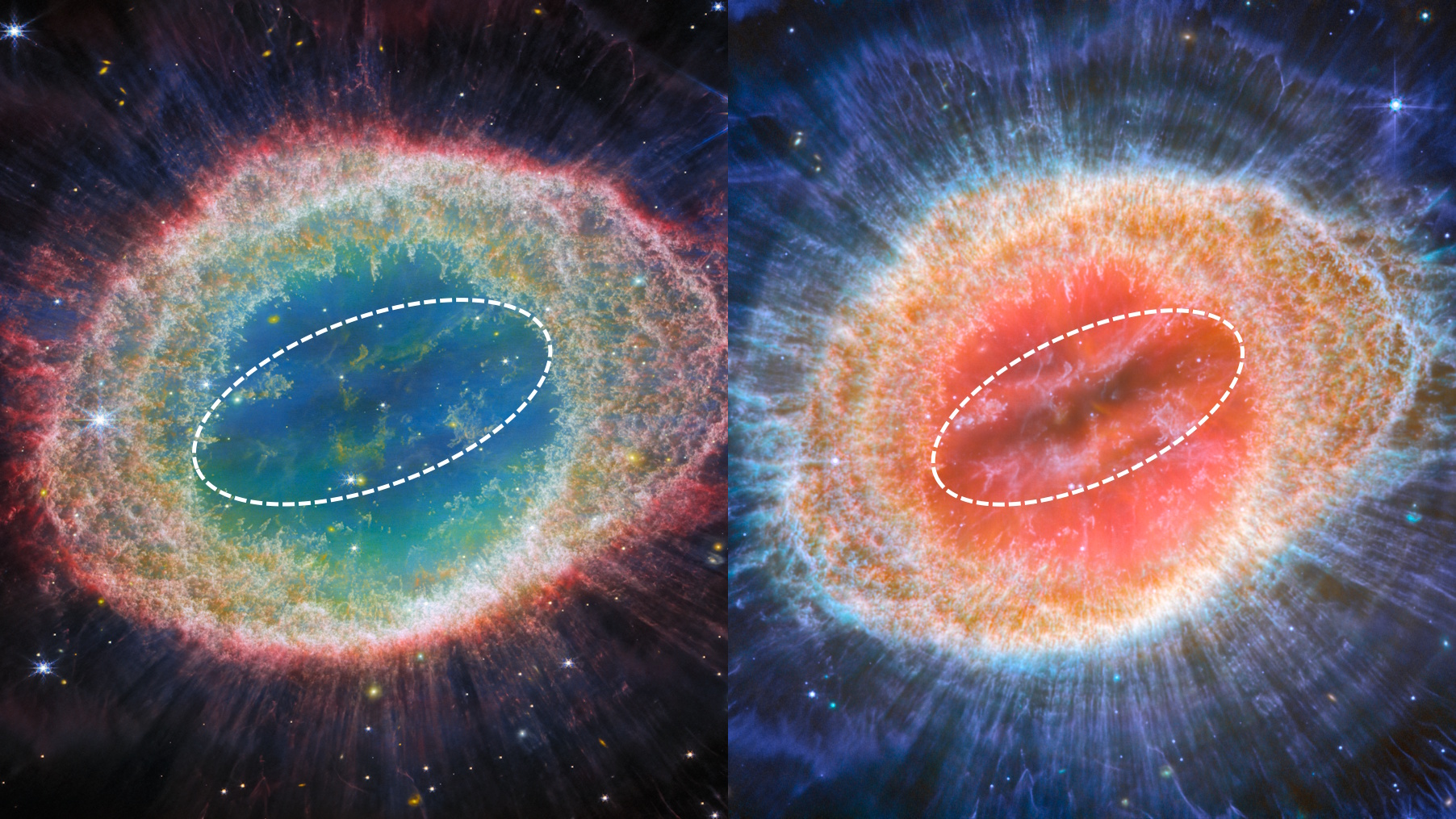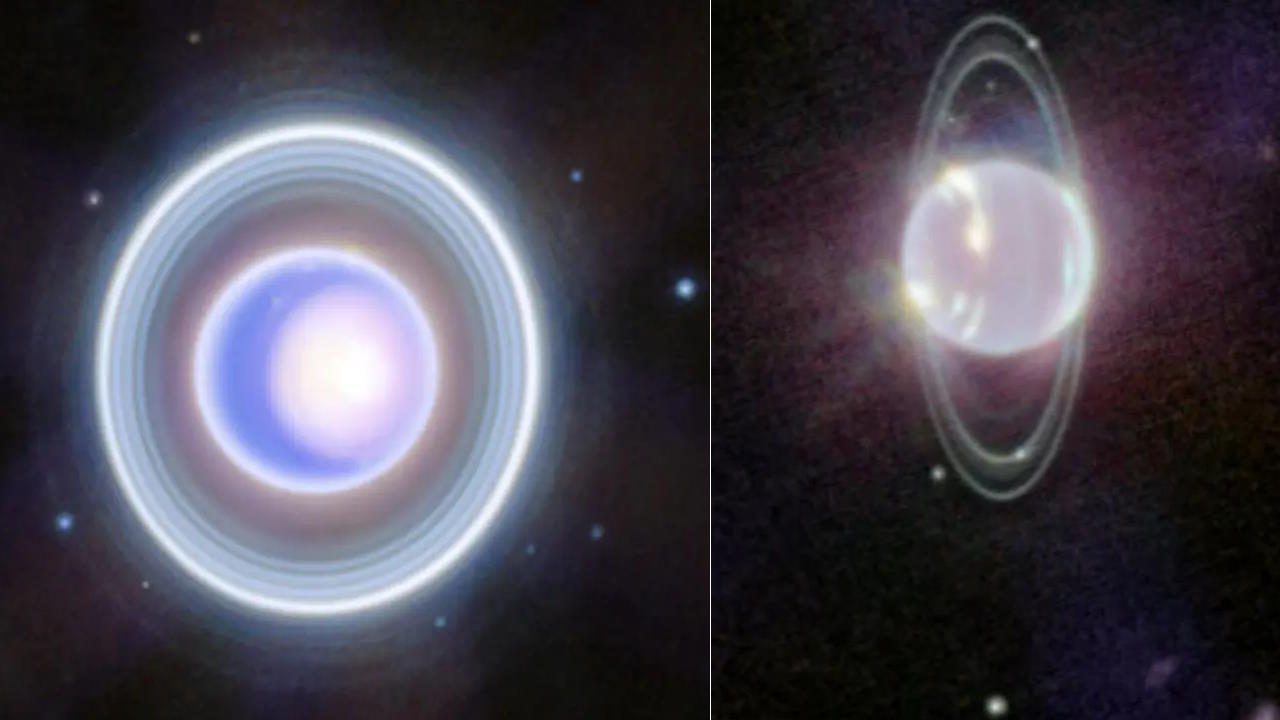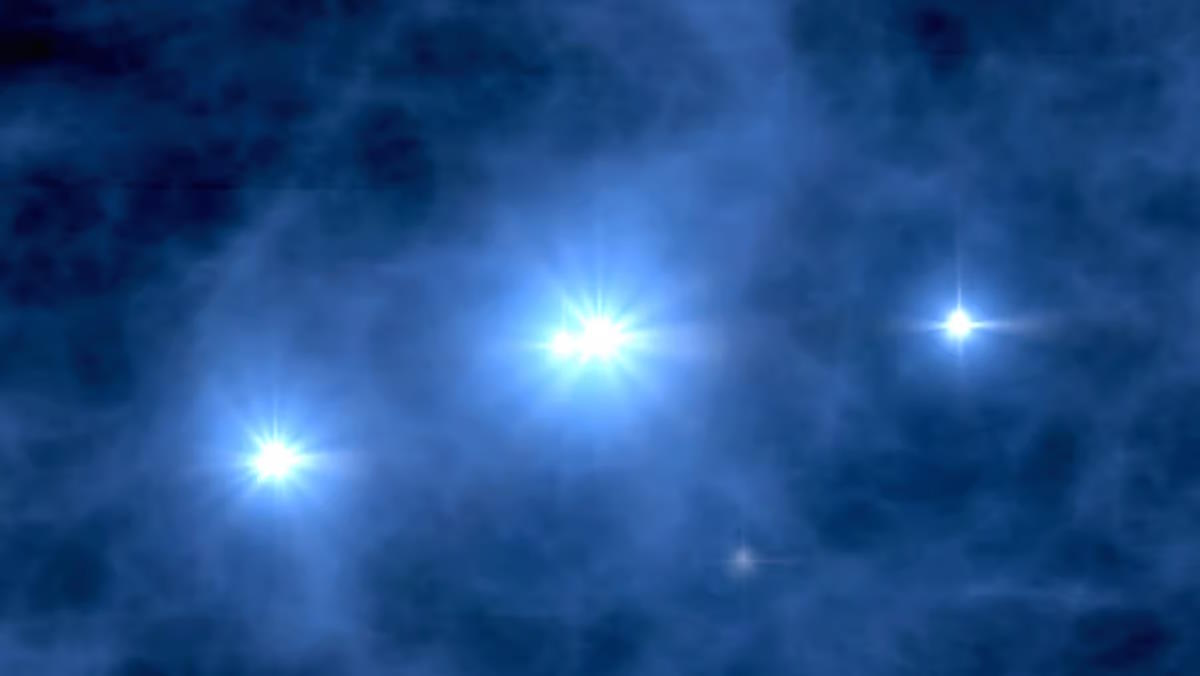Mostly Mute Monday: Amazing Final Images Of Stars Right Before They Die

Our Sun will someday become a red giant, and then a planetary nebula + white dwarf combination. Here’s what lies between.
“It will be found that those contained in one article [class of nebulae], are so closely allied to those in the next, that there is perhaps not so much difference between them, if I may use the comparison, as there would be in an annual description of the human figure, were it given from the birth of a child till he comes to be a man in his prime.” –William Herschel
The future of our Sun is very clear: someday it will run out of hydrogen in its core, expand into a red giant, where it will fuse helium until it runs out of that. Afterwards, it blows off its outer layers, forming a planetary nebula, while its core contracts down to a white dwarf.
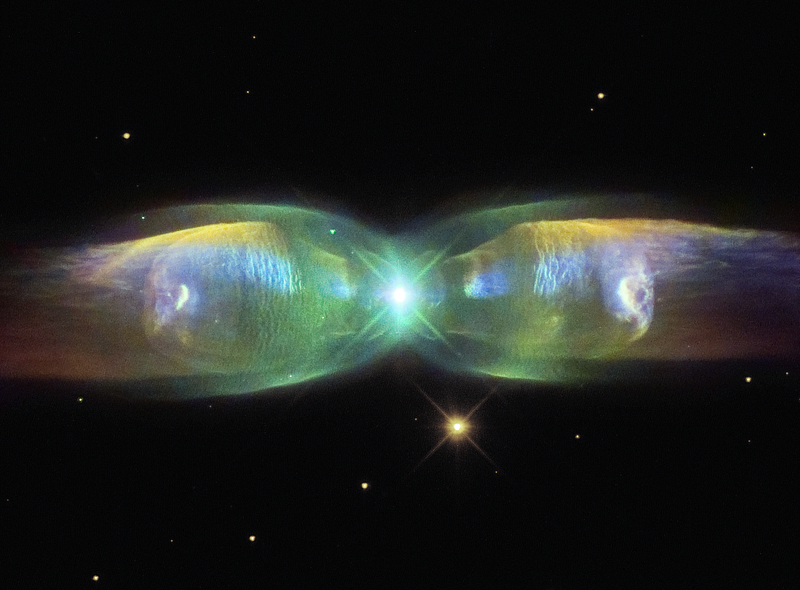
This fate, common to all Sun-like stars, affects stellar masses between 40% and 800% of the Sun’s. But the images here aren’t of planetary nebulae, but of a brief, special stage just before it: a preplanetary (or protoplanetary) nebula.
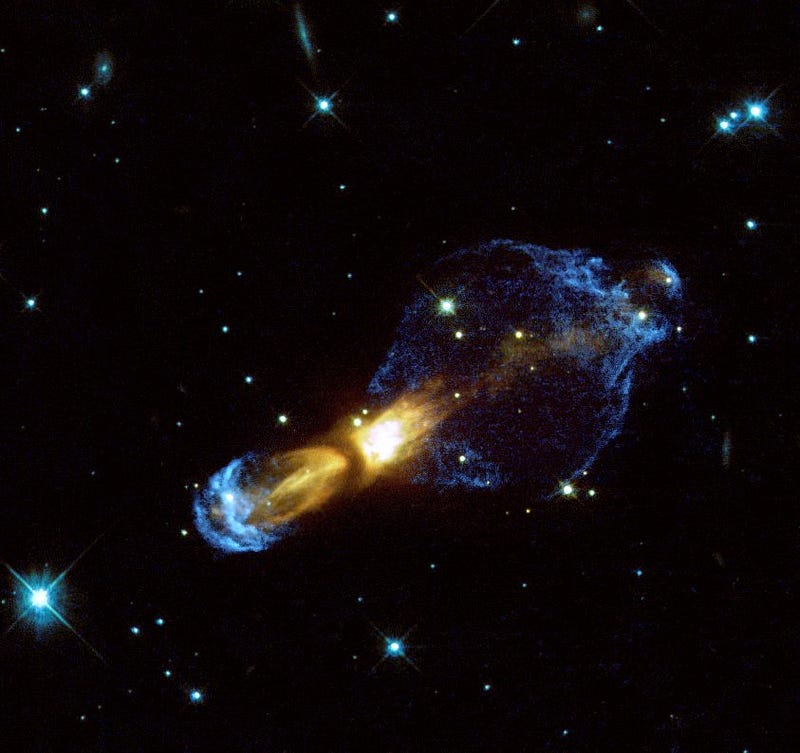
At the end of the giant phase, stars begin to blow off their outer (hydrogen) layers, a process that causes the star’s temperature to rise, as hydrogen still fuses in a star’s shell.
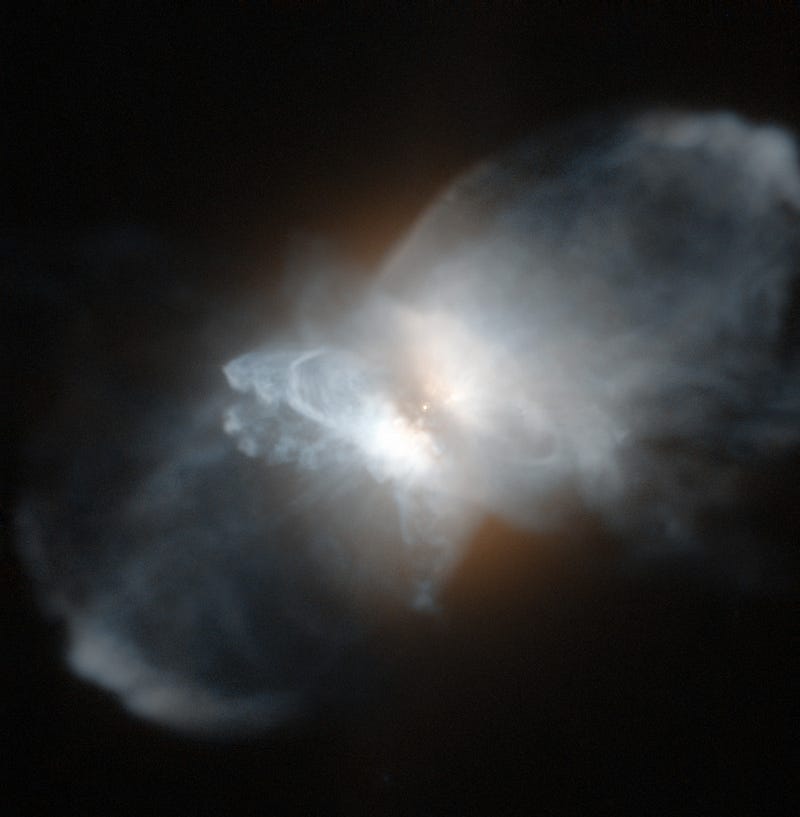
The central star becomes bluer and hotter, giving rise to intense winds.

These winds can cause a bipolar or knotted jets, as well as bow shocks.
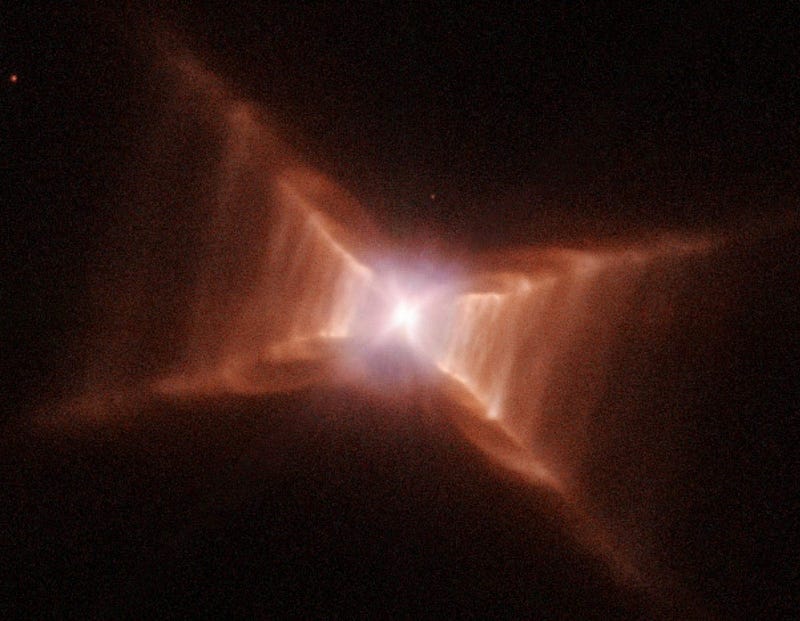
As the star heats up to over 30,000 K, the surrounding ejecta become ionized, creating emission and reflection phenomena together.
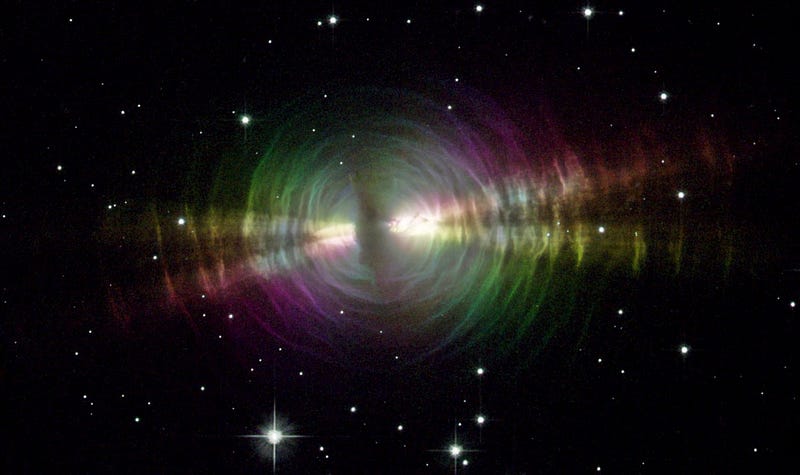
The preplanetary phase is brief (~10,000 years), but so common that we have dozens of examples in our galaxy alone.
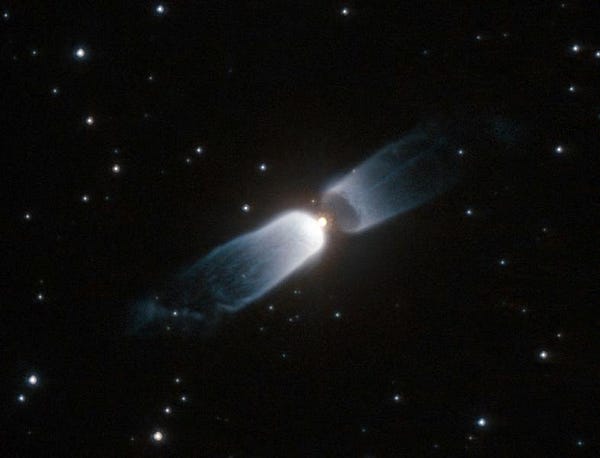
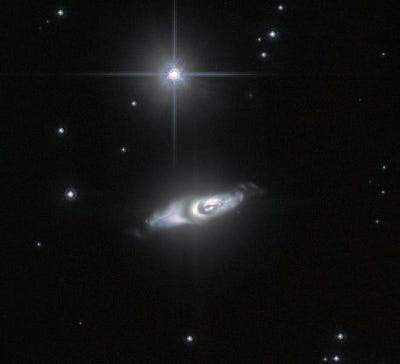
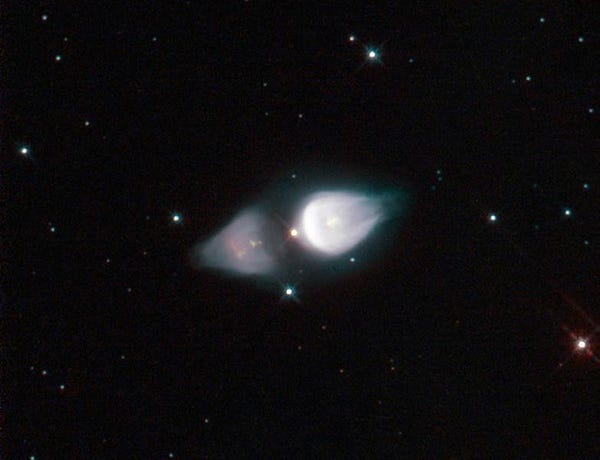
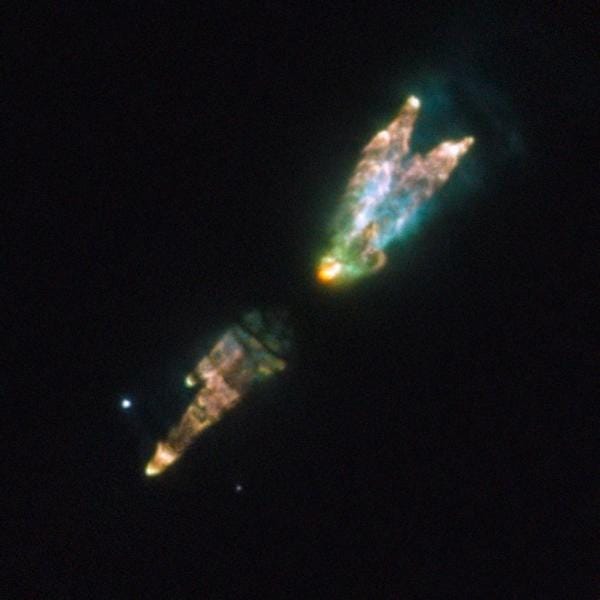
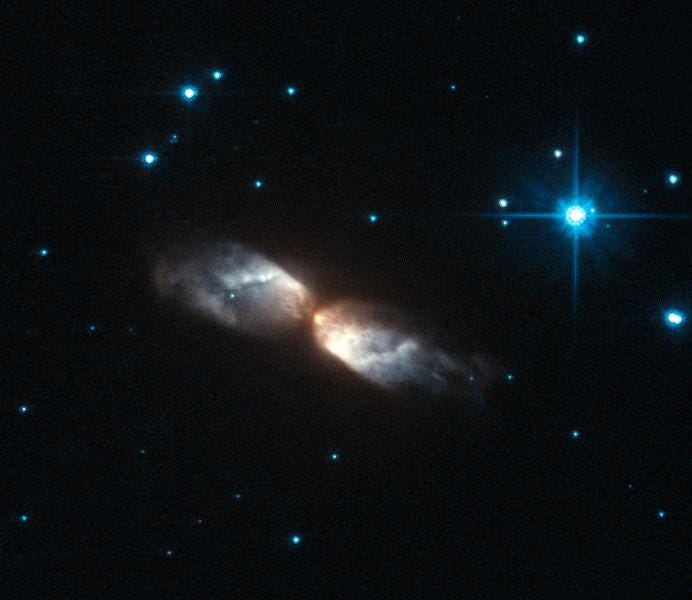
Mostly Mute Monday tells the story of a single astronomical phenomenon or object in visuals, images, video and no more than 200 words.
Leave your comments on our forum, help Starts With A Bang! deliver more rewards on Patreon, and pre-order our first book, Beyond The Galaxy, today!

